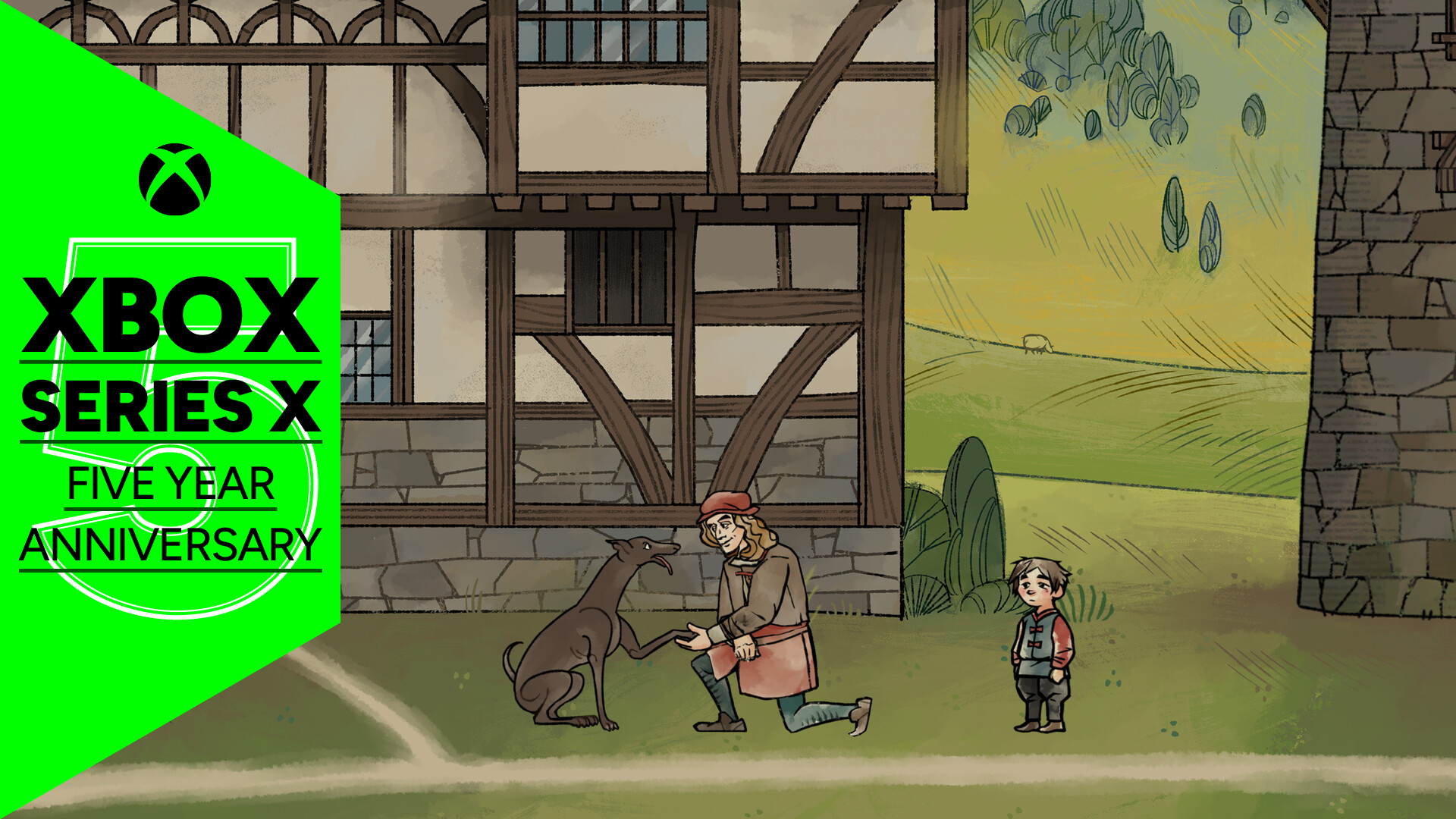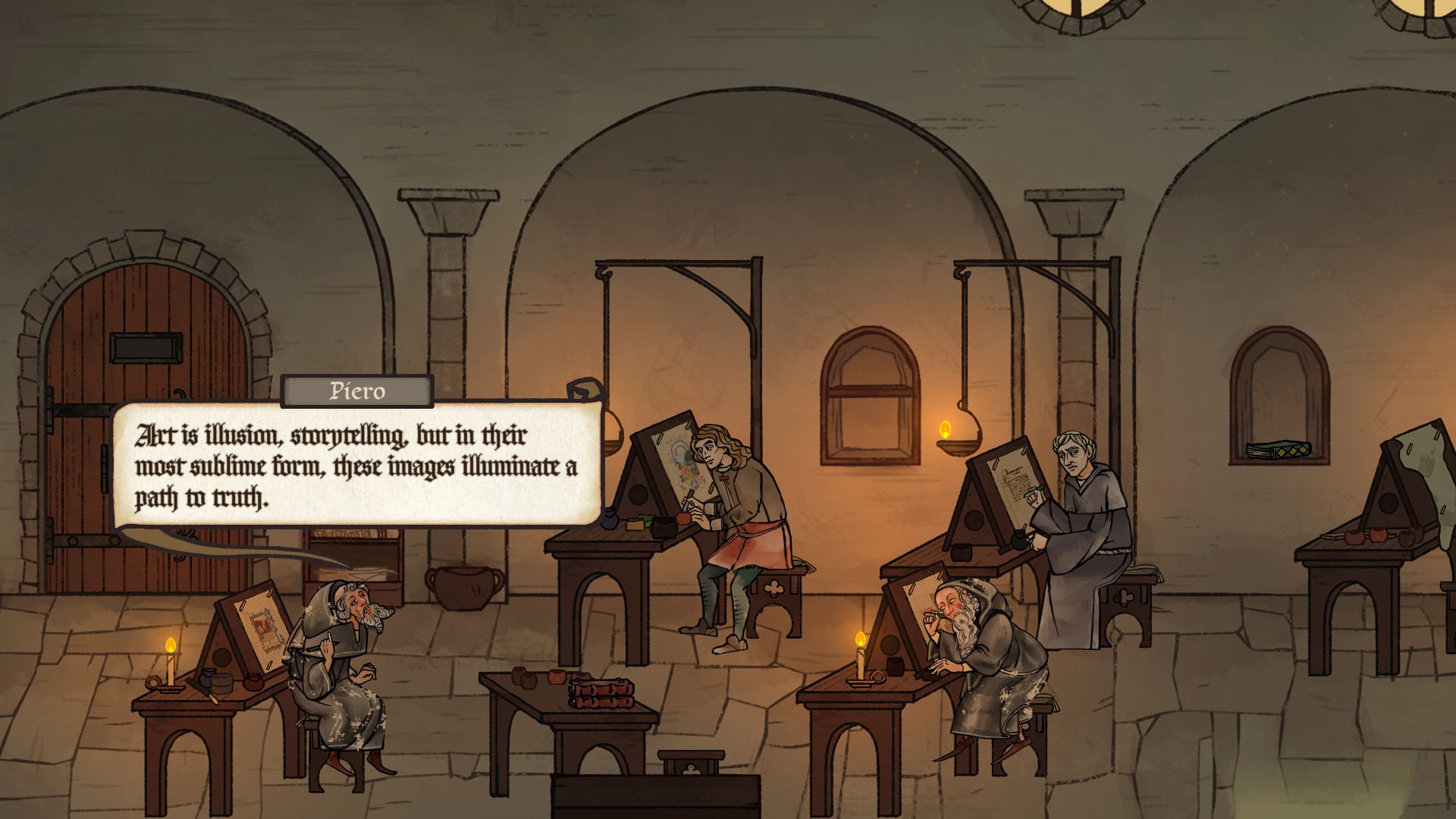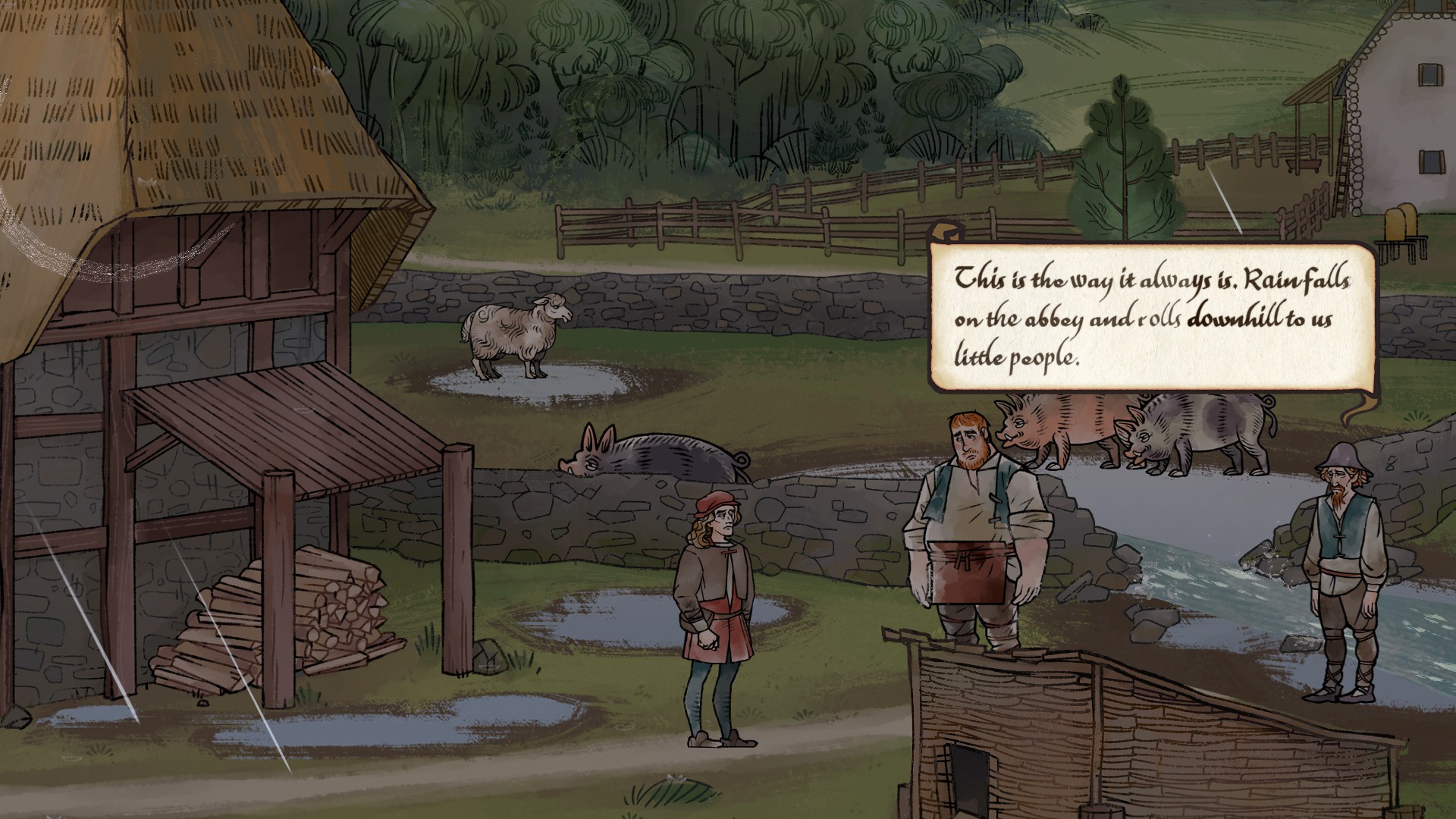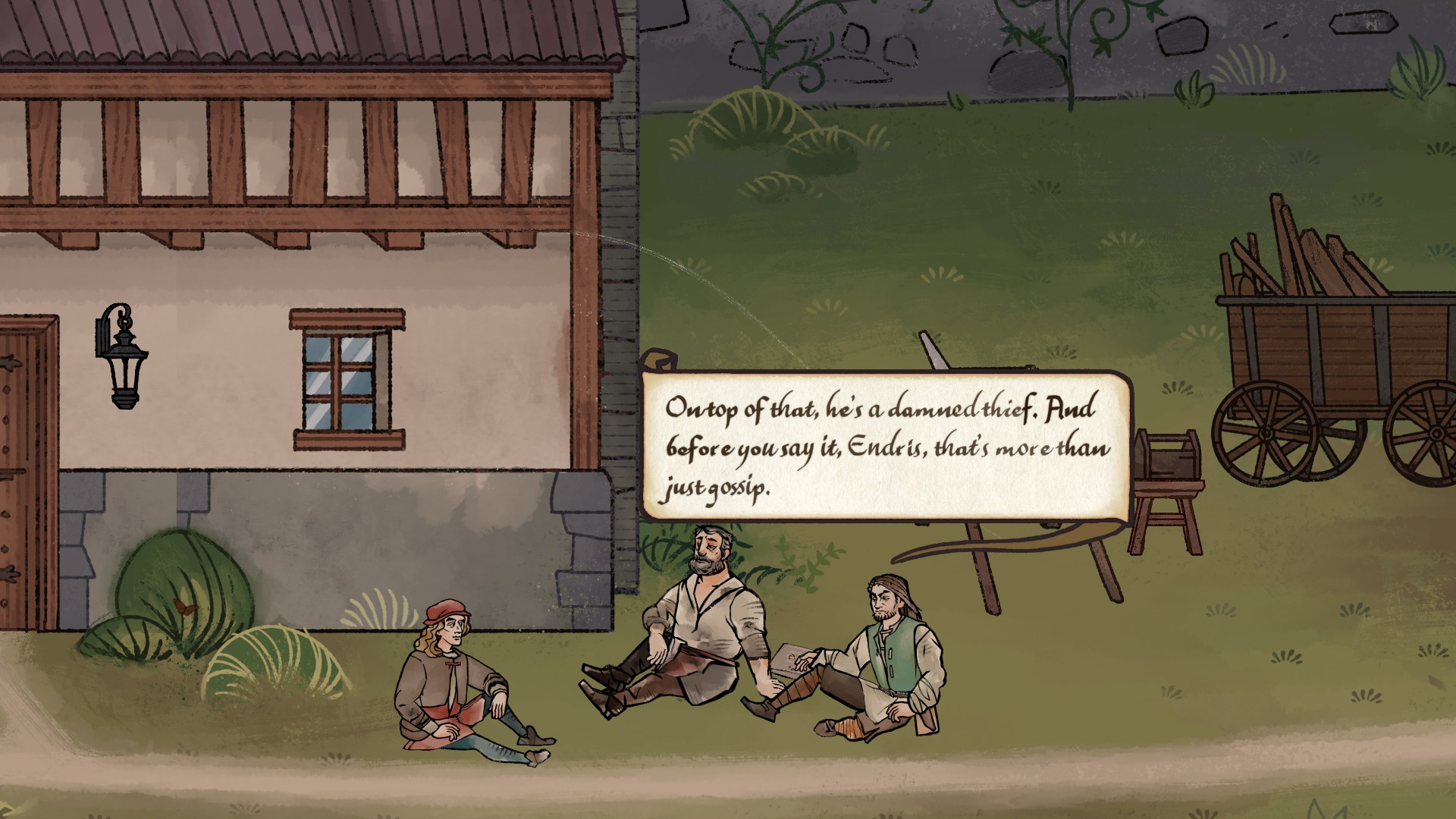Pentiment's medieval setting remains the perfect backdrop for a detective tale focused on faith and truth
Anniversary | Pentiment remains one of the best detective games of all time, and a major part of why is directly linked to its setting

Weekly digests, tales from the communities you love, and more
You are now subscribed
Your newsletter sign-up was successful
Want to add more newsletters?

Every Friday
GamesRadar+
Your weekly update on everything you could ever want to know about the games you already love, games we know you're going to love in the near future, and tales from the communities that surround them.

Every Thursday
GTA 6 O'clock
Our special GTA 6 newsletter, with breaking news, insider info, and rumor analysis from the award-winning GTA 6 O'clock experts.

Every Friday
Knowledge
From the creators of Edge: A weekly videogame industry newsletter with analysis from expert writers, guidance from professionals, and insight into what's on the horizon.

Every Thursday
The Setup
Hardware nerds unite, sign up to our free tech newsletter for a weekly digest of the hottest new tech, the latest gadgets on the test bench, and much more.

Every Wednesday
Switch 2 Spotlight
Sign up to our new Switch 2 newsletter, where we bring you the latest talking points on Nintendo's new console each week, bring you up to date on the news, and recommend what games to play.

Every Saturday
The Watchlist
Subscribe for a weekly digest of the movie and TV news that matters, direct to your inbox. From first-look trailers, interviews, reviews and explainers, we've got you covered.

Once a month
SFX
Get sneak previews, exclusive competitions and details of special events each month!
Pentiment might seem a little stuffy from the outset. It’s set in a small medieval town in Bavaria with historical detail and religious scripture so accurate that Simon Schama would approve. The game’s artwork looks like it was taken straight from a monk’s illuminated manuscript, its pages so convincing you’d need to blow the dust off them before playing.
Obsidian’s use of 16th-century Europe isn’t just for aesthetics, though. This is a story that had to be told in this precise setting. A captivating tale of conspiracy and murder, with a mystery as rich and dense as its setting, Pentiment is not only an insightful window into the past but the perfect stage for a detective tale about power, faith, truth, and the lengths that people are willing to go to preserve them. It really is one of the best and most unique detective games of the past decade.
To set the scene a little, you play as travelling artist Andreas Maler who has found work in Tassing, a small alpine town in the Bavarian Alps. Andreas has been commissioned by the town’s abbey to illustrate monastery manuscripts, and so by day his head is buried in the dusty tomes of the church’s scriptorium, and in his spare time he’s hanging out with the friendly locals who have welcomed him into their community.
Andreas’ story sits at an important turning point in European history. With the introduction of printing presses, the church's control over the writing and distribution of books is quickly becoming obsolete. More people are learning to read and write, and in doing so, the creation of books – and art for that matter – is no longer in the control of monasteries. Together with greedy landowners and church taxes squeezing pennies from peasants, the Church is being questioned, not on faith, but its institutional power. Tensions are quickly rising, and when word of a murdered noble on the Church’s holy ground gets out, it’s a spark that sets Tassing ablaze.
Saints and sinners


Pentiment review: "It's like scampering around inside a 16th century comic book"
The balance of power has been at the center of many detective stories, whether it be an evil corporation or shady government, but, in video games at least, I’ve rarely come across the questioning of religious institutions this prominently. I’ve only seen it once before in the very good visual novel Misericorde (and if you know any others, please sound off in the comments).
Using faith and religion as a backdrop for a detective tale is truly brilliant. Dreams, ghost tales, divine saints, and folk stories are used expertly to set the game’s tone. At one point, a nun screams about her visions of death and destruction, her cries can be heard through the small window of her monastic cell where she will spend the rest of her life in seclusion as a religious hermit – a common occurrence in Christian monasteries. At one point, Andreas sees a ghostly figure jump across a stone viaduct, something that the locals simply accept exists. It’s creepy, unsettling, and in a world where these visions and spirits are taken as truth, you must accept it as truth too. With that mindset, it’s unsettling to know that even in this holiest of places, there are still lies and schemes, blackmail and blood.
It’s a pitch-perfect theme for ambience, but this setting of faith and religion is tightly interwoven with the story too, and it’s something that the player must grapple with throughout the whole game. In a time when bishops are burning books and the men who wrote them, the setting constantly asks you to question how we tell history, how we preserve history, and our understanding of the past.
Weekly digests, tales from the communities you love, and more
The church has power, money, and religious divinity – and so whether you believe in the word of God or not, a big part of the game is navigating how the church wields its ‘truth’. The locals of Tassing begin to question their standing with an institution they have trusted their whole lives, as one character aptly puts it: “Rain falls on the Abbey and rolls downhill to us little people. There’s a reason why they are up there and we’re down here”.
One for the history books

Sitting at the center of all these forces is Andreas, a guest of both the church and a welcome member of the surrounding community. This societal standing is something you need to navigate gameplay-wise. It’s the 16th century, babe, so that means no DNA, no fingerprints, no handy gadgets, nothing. You’re not left totally helpless, though. Andreas, the artist that he is, has a sketchbook for noting down leads in the investigation together with maps and character profiles. Ultimately, however, the way you solve this murder mystery is through managing your relationships on Tassing’s hierarchical ladder. You need to rely on the gift of the gab, often counting on rumors, gossip and hearsay.
Your chosen background and dialogue choices will help and hinder you in this regard. A bit of advice: maybe don’t go mouthing off about the Church to the Abbey’s Abbot, he’s really not going to like that or trust you ever again. Save your grievances for the locals instead, who will happily hear you out and even offer you town gossip in return. This is one approach of many, and as much as fence sitting might be an easy way to gather information, you will eventually have to make definitive choices.

It’s a game that asks you to consider not only whodunnit, but which side of history you want to be on
There are still plenty of detective staples here – cyphers to decode, secret passageways, cryptic notes – but the focus here is on getting to know the people of this historic setting, and their place within that history. You really need to pay attention to people’s perspectives, motivations, ethics, and even education and religious standing. It’s something that detective games have dabbled with (Disco Elysium comes to mind), but it’s given so much attention here it’s admirable.
Whoever you do eventually point the finger at has a direct impact on this small community, consequences of which are huge for them, but ultimately a footnote in the history of what is to come. Pentiment makes you feel that weight. It’s a game that asks you to consider not only whodunnit, but which side of history you want to be on.
You can feel the passion that has gone into researching this period from the immense amount of historical detail. There’s obviously a rich and dense history Obsidian has delved into, but it’s never prioritized above the mystery and detective work of the game. I’ve not played another game that grapples with faith, truth, and lies as intricately as Pentiment. It’s truly remarkable.
Here are the best Xbox Series X games you should play next

Rachel Watts is the former reviews editor for Rock Paper Shotgun, and in another life was a staff writer for Future publications like PC Gamer and Play magazine. She is now working as a freelance journalist, contributing features and reviews to GamesRadar+.
You must confirm your public display name before commenting
Please logout and then login again, you will then be prompted to enter your display name.


